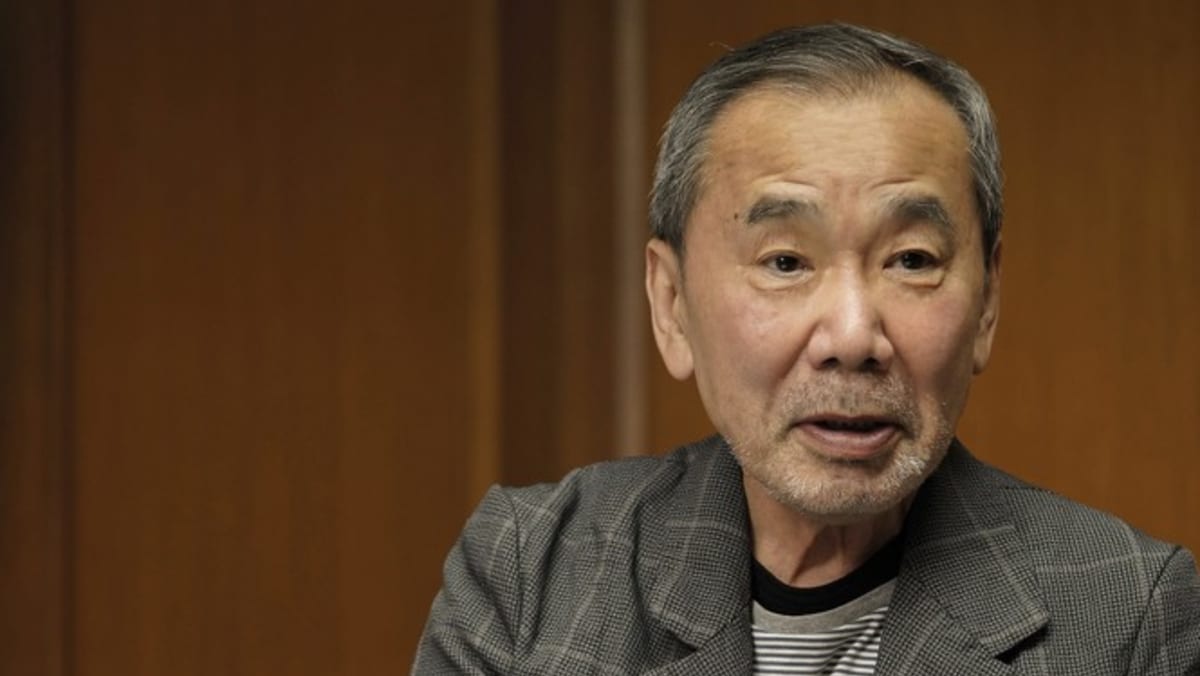
He kept thinking about the meaning of the wall in this story while writing it, Murakami said. Walls can carry different meanings and purpose, depending on who are inside, he said.
Equally important to Murakami and his stories is the shadow. He says the shadow is a form of his subconscious, or an alter ego, which resembles his negative side and helps him to know himself.
“Writing a novel, for me, is to dig down to that depth,” he said. The distinction between the main body and the shadow becomes blurry in the book, which broadened its scope of the story. He said it was a difficult process and he had to rewrite many times.
“I’m now in my mid-70s, and I don’t know how many more novels I can write. So I strongly felt that I must write this story with affection, and spend ample time to do so,” he said.
Murakami, who debuted with a 1979 story Hear The Wind Sing, says the original version of his new novel contained the key elements of the wall and the shadow but it also had potential that was too complex for a second-year novelist to handle.
It then evolved as part of Hard-Boiled Wonderland And The End Of The World, a 1985 bestseller of two intertwined stories of pop and action-filled science fiction and an imaginary world of a secluded walled city of the dead.
Looking back, Murakami said even that attempt was premature. He shelved a rewriting attempt for another 35 years, though the story stayed on his mind, “like a tiny fishbone stuck in the throat”, he said.
Murakami said he started feeling confident about his storytelling ability in midcareer, around 2000, just before he wrote Kafka On The Shore, the bestselling novel released in 2002. “From there I have come thus far, I thought perhaps now I can finally rewrite the incomplete work of The City And Its Uncertain Walls.”
Twice as old now at age 74, Murakami says he is more intrigued by the tranquility as in “the End Of The World” part of the 1985 novel than the pop and action depicted in the Hard-Boiled Wonderland side of that novel.
“You can’t help it, and I think it’s only natural,” he says, but he never tires of balancing writing novels, translating his favourite Western literature and in recent years hosting his own radio show. “I really enjoy writing. It’s fun to write, and rewriting is more fun.”
The driving force for his multiformat operation, he says, is running. It’s his daily morning routine and he has run 40 marathons. “Translation, running, and collecting used records,” he said, citing his hobbies. “I don’t have time for a night life, which might have been a good thing.”
